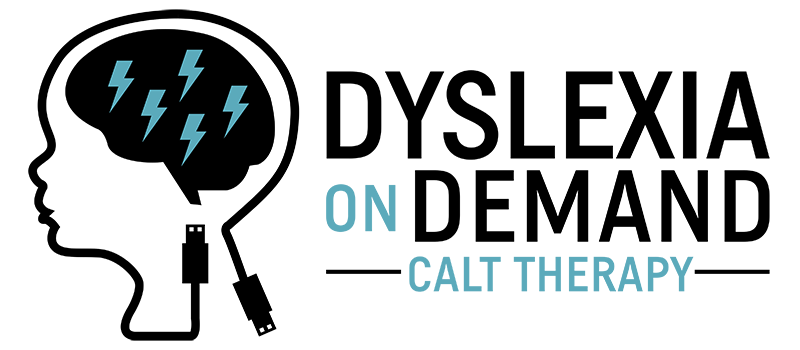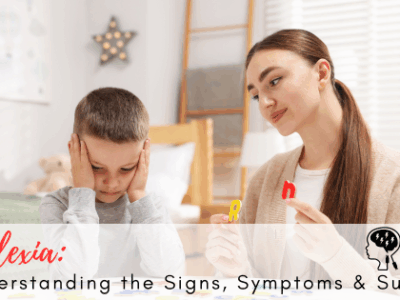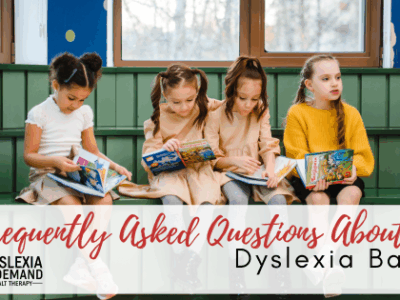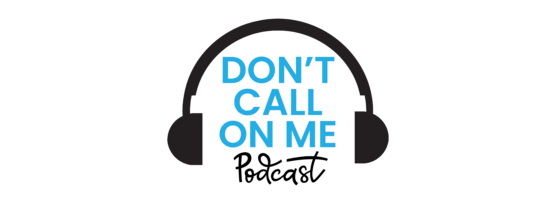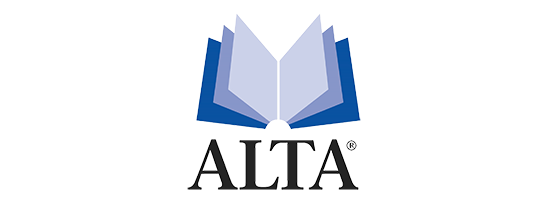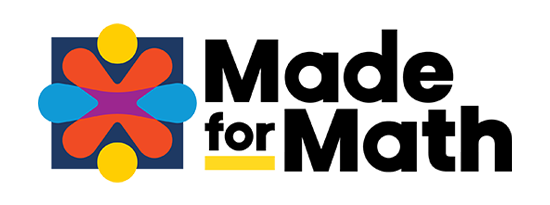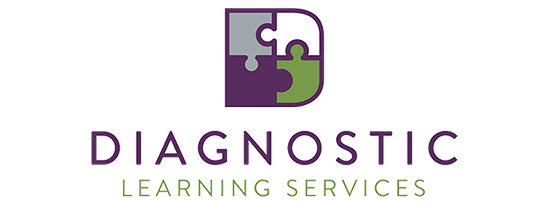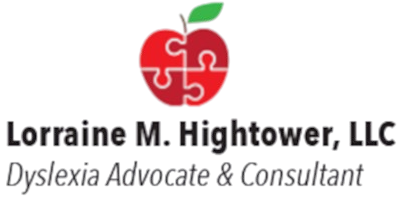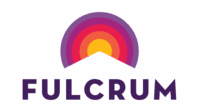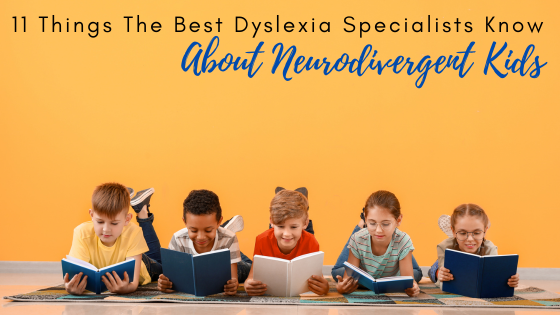
11 Things The Best Dyslexia Specialists Know About Neurodivergent Kids
Neurodivergence has become a more common term in recent years. It’s often used to describe people with autism, ADHD, OCD, mood disorders, anxiety disorders, personality disorders, or learning disabilities like dyslexia. Truly, being neurodivergent means that your brain functions, processes, behaves, and learns differently than brains that are considered “typical.” Neurological differences, while they may present challenges in classrooms, aren’t necessarily a bad thing. Different brains, as it turns out, have different strengths; diversity is a good thing. No matter what the brain difference is in a neurodivergent person, it is essential that they get the kind of support that they need in order to succeed. This is especially true for school-aged students who are in the throes of reading, studying, and learning in the classroom. Fortunately, there are plenty of experts with experience that can help neurodivergent students. Read on to learn 11 things that the best dyslexia specialists know about neurodivergent kids.
- Be flexible with your expectations. Whether you’re using report cards, standardized tests, or teacher feedback as means to measure your neurodivergent student’s progress, it is so important to adjust the expectations that you have. There may not be straight As; there may be off the charts high scores, or there may be difficulties with behavior in the classroom. It can be so easy for parents to have a set of expectations laid out that align with a typical learner. For students with dyslexia, specialists know that these may not be met. Neurodivergence can produce more than a straight-A student; it can actually help a student to develop grit, perseverance, and a powerful work ethic. Channel these positive qualities by getting the right help for your student.
- A diagnosis is essential. Is your child neurodivergent, or do you simply suspect he or she is? Whether you think your child has a learning disability, a mood disorder, or another brain difference, getting a thorough assessment can be so helpful for treatments and solutions. Having a clear diagnosis from a professional or specialist can help to set students –and parents—on the right path with the best kind of support. Getting an official dyslexia diagnosis can allow for additional resources and effective interventions — interventions that can unlock their potential and/or provide a clear answer to their struggles.
- Individual help can be so effective. The best dyslexia specialists know that there is not just one correct solution for helping students with dyslexia. Having a curriculum that is comprehensive, adaptable, and flexible is helpful for students, and tailoring a program to be prescriptive to the needs of each child tends to produce the best results. A top-tier dyslexia professional is uniquely qualified to make the curriculum specialized to the child rather than the other way around.
- Work with experts. When it comes to dyslexia, treating the root of the issue can be more helpful for neurodivergent learners. So when there is a choice for tutoring, teaching, or therapy for students with dyslexia, consider working with a qualified therapist. At Dyslexia on Demand, Certified Academic Language Therapists are highly trained experts that are qualified to implement therapeutic grade dyslexia intervention programs.
- Consider the senses. For neurodivergent learners, a multisensory approach to teaching and learning can be the best option. In dyslexia therapy, multisensory methods help to build accuracy, knowledge, and independence for students.
- Intelligence is not the issue. Dyslexia is one of the most common learning disabilities. While people with dyslexia may struggle with understanding the process of reading and language use, it is not indicative of below-average intelligence. Getting the right kind of help—like dyslexia therapy—can help to unlock the potential that an intelligent neurodivergent student has.
- Emotional support is a part of the puzzle. Of course, getting help for academics, reading, writing, and language is all important for students with dyslexia. However, emotional support is also a big part of the process. Supporting neurodivergent students emotionally can be just as valuable as getting academic support. Educating students about their learning difference and offering emotional support for frustration and challenges can truly empower students with dyslexia.
- Put your trust in tried and true methods. Years of research and work with students with dyslexia have produced some great programs. Programs like the ones used at Dyslexia on Demand are developed to enable students with dyslexia to achieve and maintain better word recognition, fluency, and comprehension.
- Seek help outside of school. School can sometimes offer a resource center, accommodations, or interventions for the classroom. However sometimes these are just surface-level solutions. For kids, this might not be the best long-term plan. Working one-on-one with a Certified Academic Language Therapist outside of the classroom can be life-changing for a neurodivergent student with dyslexia.
- Intensive therapy can be most effective. The skilled, one-on-one intervention like the kind that Dyslexia on Demand offers can be so helpful for neurodivergent kids. Doing dyslexia therapy with high frequency over a sustained period of time can help with student performance.
- Look for the very best help. One-on-one. Experienced. Individualized. Dyslexia on Demand is such an amazing resource for students with dyslexia. Not only are the methods focused on being academically successful, one of the major tenets at Dyslexia on Demand is that every child deserves the opportunity to learn.
Does your neurodivergent learner need help with reading and academics? Look into dyslexia therapy at Dyslexia on Demand. Learn more at our website, or reach out by phone at 888-292-3906.
References
International Dyslexia Association. (n.d.). Dyslexia basics. https://dyslexiaida.org/dyslexia-basics/
International Dyslexia Association. (n.d.). Structured literacy: Effective instruction for students with dyslexia and related reading difficulties. https://dyslexiaida.org/structured-literacy-effective-instruction-for-students-with-dyslexia-and-related-reading-difficulties/
Academic Language Therapy Association. (n.d.). What is a Certified Academic Language Therapist (CALT)? https://www.altaread.org/
Shaywitz, S. E., & Shaywitz, B. A. (2020). Overcoming dyslexia (2nd ed.). Vintage.
Birsh, J. R., & Carreker, S. (Eds.). (2018). Multisensory teaching of basic language skills (4th ed.). Paul H. Brookes Publishing.
National Center on Improving Literacy. (n.d.). Supporting students with dyslexia. https://improvingliteracy.org/
Scottish Rite for Children. (2020). Take Flight: A comprehensive intervention for students with dyslexia (Research summary). https://scottishriteforchildren.org/take-flight-a-comprehensive-intervention-for-students-with-dyslexia/
